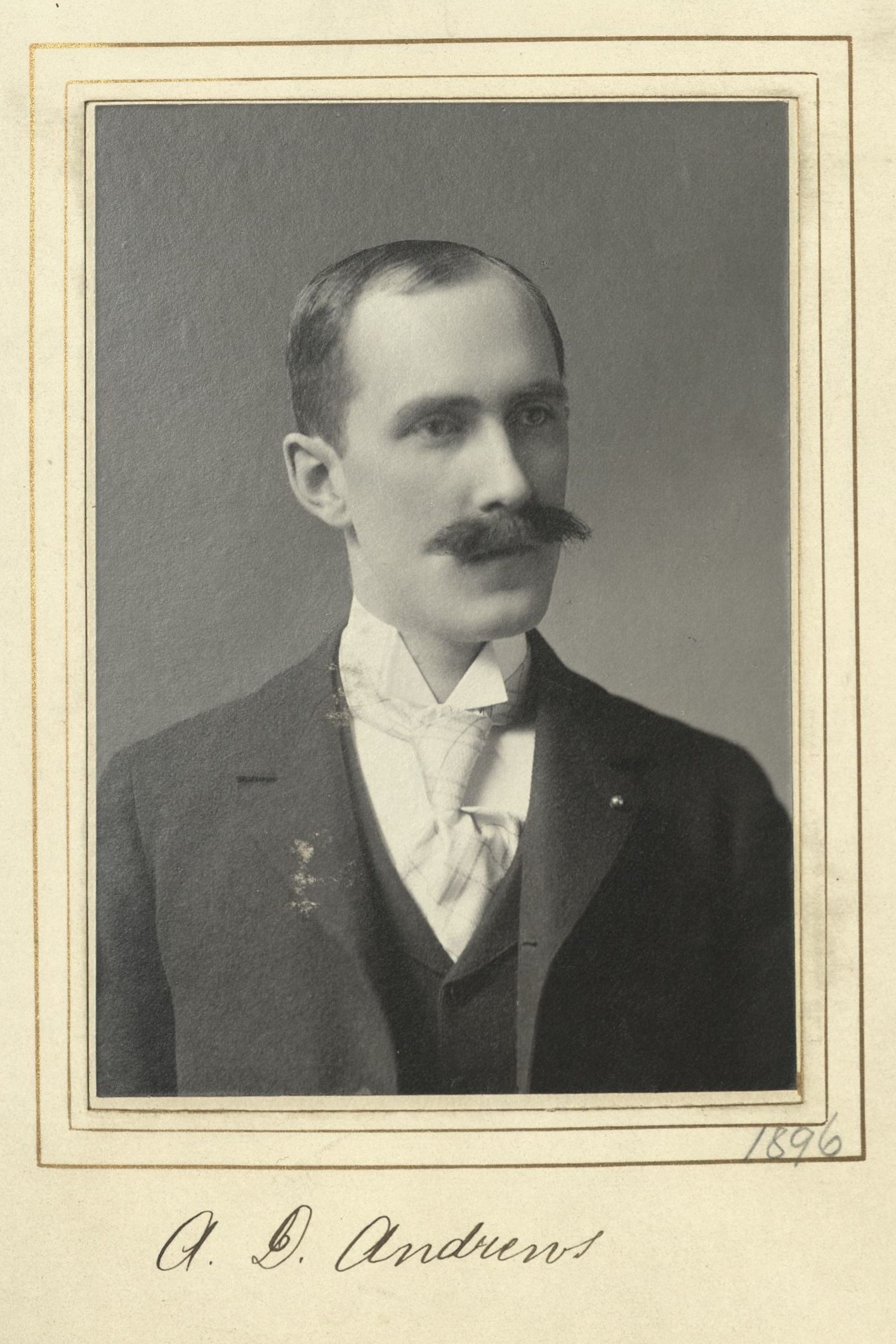Police Commissioner/Lawyer
Centurion, 1896–1959
Born 4 April 1864 in Massena, New York
Died 19 April 1959 in Winter Park, Florida
Buried Arlington National Cemetery , Arlington, Virginia
, Arlington, Virginia
Proposed by Frederic R. Coudert, Theodore Roosevelt, and Stephen H. Olin
Elected 7 March 1896 at age thirty-one
Century Memorial
General Andrews lived actively in the years most of us only read about. As soldier, lawyer, New York Police Commissioner, and business executive he saw more changes in every field of his endeavor than have taken place in any similar span of time in history. Born during the Civil War, he saw the birth of the telephone, the electric light, the automobile, and the airplane, but he has seen, too, the cold war and satellites in orbit. He was as American as you can be: one direct ancestor landed in Plymouth Colony in 1621, another in Massachusetts Bay in 1635.
Avery Andrews was graduated from West Point in 1886 and commissioned a second lieutenant in the Fifth United States Artillery. While in the army he studied law at Columbian (later George Washington) University and took his degree of LL.B. in 1891. The following year he got another bachelor’s degree from New York Law School. Evidently in those years of peace this departure from rigid duty as an army officer was possible, but it was certainly unusual.
From the time he resigned from the army in 1895, Andrews’s interests expressed themselves in many fields, and he achieved triumphs in military, legal, business, and governmental activities. For three years after leaving the army he was New York City’s Police Commissioner. His most celebrated contribution to the effectiveness of the force was his organization of the first bicycle squad, whose duty was to stop runaways. At the same time, he never quite left the military as he was active in the national guard of New York. In 1898 he was briefly in command of Squadron A, but in the summer of that year the Spanish War drew him back into the armed forces. He served as lieutenant colonel of volunteers on the staff of Major General James H. Wilson, U.S.A., until the war was over. In 1899 he was appointed adjutant general of the State of New York with the rank of governor general.
In the First World War he was assistant chief of General Pershing’s staff in France. But in the intervals of his military career he found time for legal and business activities. He practiced law with the firm of Wells and Andrews, he was the representative in the United States of the Royal Petroleum Company of Holland and the Shell Transport and Trading Company of London, and he was director of the Irving Trust Company of New York, the Central-Penn National Bank of Philadelphia, and the Shell Union Oil Corporation.
He was a Centurion for sixty-three of his ninety-five years.
Roger Burlingame
1960 Century Association Yearbook

